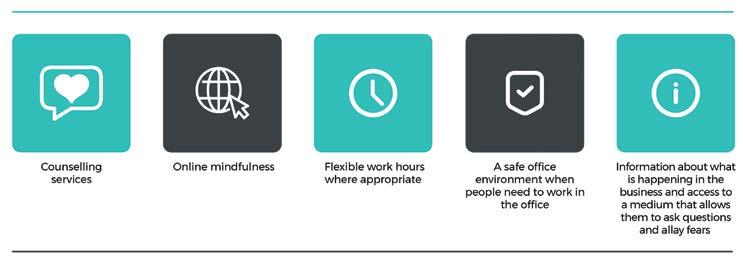THOUGHT LEADERSHIP ARTICLE
Should Government still apply the BEE policy in times of Covid? By Thulebona Buthelezi
P
resident Ramaphosa on Monday March 23, 2020 announced the l o c kd o w n i n S o u t h Africa from March 26 to April 16, 2020 to contain the spread of the coronavirus. This move had an impact on many business, as operating costs grew. To aid business and society, on the April 21, 2020 President Ramaphosa introduced a Covid relief fund amounting to R500 billion. Within the relief measures, tax incentives were introduced to lessen the cost burden on businesses.
from large companies through procurement and enterprise and supplier development policies. Industrial policy released by the government requires many businesses to support small, black-owned businesses through procurement. This is to encourage entrepreneurship, which leads to increased employment. Socio-Economic development: We look at the wellbeing of society. Companies must create initiatives that enable the ordinary man on the street to access the economy. These initiatives include grants and mentorship, and assisting with skills development.
Despite the various interventions from the government to alleviate Taking the above into considThulebona Buthelezi, Director, Izwelisha BEE Verification Agency the cost burden on businesses eration, BEE in times of Covid is operating in different industries, there still relevant. If these BEE policies were Management control were calls for the government to scrap to be abandoned now, it would worsen In this component we look at who runs the BEE legislation so that restrictions on the poverty situation in the country. In an company. The directors and the employees article published by IOL, on November 12, operating in certain industries could be are responsible for running the company. relaxed. The Solidarity and AfriForum took 2020, President Cyril Ramaphosa is quoted The Broad-Based Black Economic Empowthe Department of Tourism to court over as saying: “If we take steps to promote BEE erment (B-BBEE) Commission recently its BEE policy application on companies in it is wrong for those who think it is a racist published a report on transformation in the tourism sector that required access to policy. I’m frankly surprised at those who, South Africa for the 2019 calendar year. Covid relief funds. having enjoyed the privileges of the past The Commission found that companies regime take umbrage, are very angry when in South Africa are not fully transformed. The purpose of the Black Economic those who did not enjoy the privileges are There is a dearth of black directors and Empowerment policy is to ensure translifted up”. senior managers in many companies, an formation in the economy in terms of: indication that transformation is slow. Transformation is a continuous process Ownership: and the gap between the poor and the Skills development In this component, we look at the ownership wealthy is still too wide. It is imperative that This is the most imperative component. It of businesses. In a 2017 news article by companies through the BEE policy should involves training of people so that they can Moneyweb, it was stated that 40% of JSEassist the Government to close this Gap. be equipped enough to run and manage listed companies were owned by foreigners The government has special measures in companies. In South Africa, many people while 22% were owned by black people place for companies that serve as a hedge have low levels of education, which exac(Indian, Coloured, Chinese and black South against economic difficulties caused by erbates the unemployment problem. African) and 23% owned by white South Covid. Africans. If this policy is upheld, we would Enterprise and supplier development The BEE policy should not be abandoned see the gap widening, with fewer estabIn this component small businesses benefit by the government. lished black-owned companies.
32
|
FINANCIAL MAIL ESSENTIALS • ABC of BEE 2020/21











